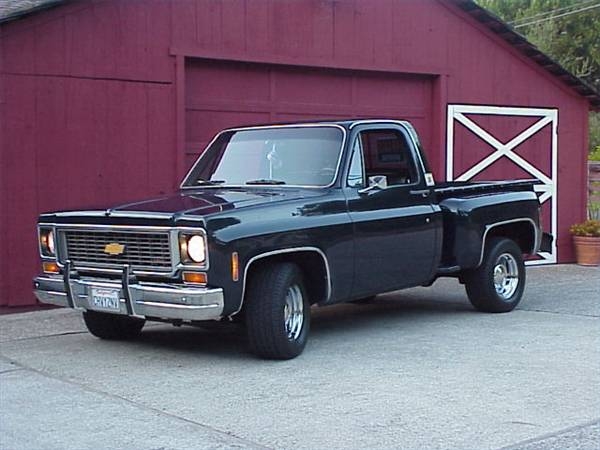
Chevrolet trucks have been manufactured with similar engines and drive train setup for nearly three decades. This makes upgrading them relatively easy, and inexpensive bolt-on parts can dramatically improve performance. The average backyard mechanic will spend about two hours making these upgrades.
Replace the air intake and cleaner with an open element filter. The stock intake and filter are optimized for a balance of economy and performance. If an open element filter is used, the engine can draw in air more quickly and have improved acceleration. An open element filter has the paper mesh filter exposed to the outside air instead of protected in a restrictive air box. If the truck is fuel injected, be sure the new intake can accommodate any necessary sensors.
Use spark plugs with a higher heat value. If the stock plug was rated at a heat value of 3, then getting 4 or 5 HV plugs will dramatically increase performance by burning fuel completely. Hot plugs may cause the engine to run at higher temperatures.
Replace the ignition coil and spark plug wires with high-performance models. Stock plug wires range from 5 to 7 millimeters, and increasing this size to 8 or higher can increase the amount of power transferred to the plugs. Old ignition coils can decrease in output power over time, and a high performance coil will fire better than the stock version did when it was new.
Increase the octane level of the fuel. Several types of gasoline additives will boost take-off power and also help emissions and economy.
Replace the engine or transmission. The most speed will be gained by adding more raw power, and installing a new motor or transmission will absolutely increase speed. A motor with more horsepower, or a manual shift transmission (as opposed to automatic) will make the truck faster. Typically these parts are obtained and installed by professionals, but the average mechanic can do this also.